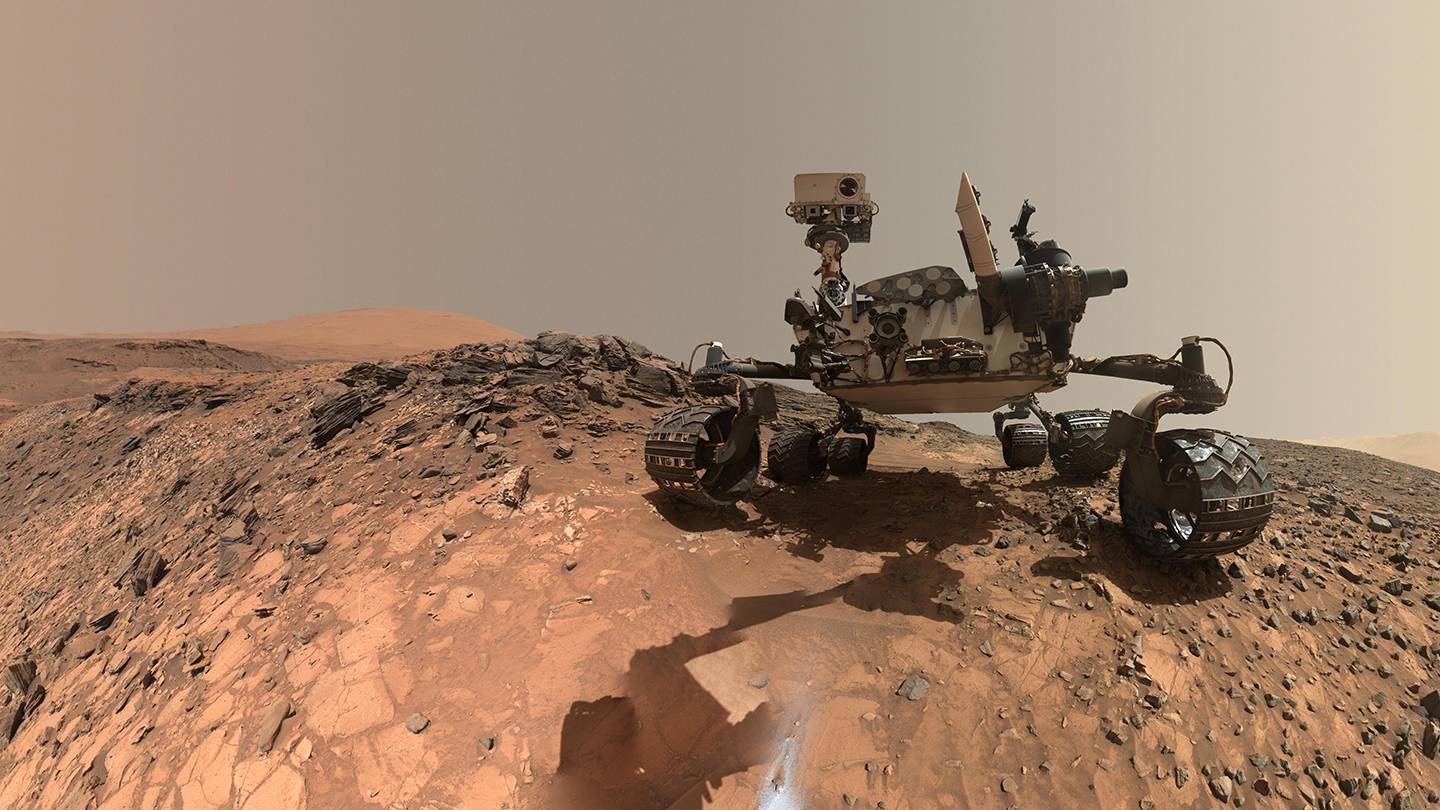Since 2012, Mars Curisoity Rover has been exploring the planet’s Gale Crater. In that time, the tools onboard NASA’s car-sized planetary exploration vehicle have been collecting lots of data to study biological, climate and geologic aspects of Mars.
With all of the tools onboard, scientists recently found a new use for the rover: measuring gravity from the surface of the planet.
They did so by utilizing accelerometers, a more precise version of navigation tools that are also in smartphones. A team that includes Johns Hopkins University professor Kevin Lewis was able to recalibrate the accelerometers onboard Curiosity to be used for gravimetry, or the measurement of small changes in gravitational fields. Results of the measurements were published on Thursday in the journal Science. The group of authors on the paper also included Nicholas Schmerr from the University of Maryland, College Park.
“Curiosity, essentially, has a new science instrument six and a half years into its mission,” Lewis, an assistant professor in Johns Hopkins University’s Earth and Planetary Sciences department, told the JHU Hub. “This allows us to get new information about the subsurface of Mars in ways the rover was never designed to do.”
Mars, you are my density.
In '72, Apollo 17 astronauts measured gravity on the Moon with a special tool called a gravimeter. I repurposed accelerometers to take similar measurements on Mars. Turns out Mount Sharp isn't as dense as expected 🤔 https://t.co/ZdiTtWLd4r#MoonToMars pic.twitter.com/S3Kbq3Dgmy
— Curiosity Rover (@MarsCuriosity) January 31, 2019
The measurements can be conducted from a satellite in orbit, but the smallest changes require ground-based readings. Lewis and team were able to take the measurements as Curiosity climbed the 5-km. Mt. Sharp. Essentially, the rover measured the weight of the mountain.
According to the Hub, it’s the first time surface gravity measurements have been taken on a planet other than our own.
The results showed that Gale Crater contains low-density rock, which suggests the crater floor was not once buried under rock as scientists have theorized.
Here on Earth, we’ve seen a number of hackathon participants find unexpected uses for accelerometers, but making a discovery on Mars is by far the most impressive example.
Join our growing Slack community
Join 5,000 tech professionals and entrepreneurs in our community Slack today!
Donate to the Journalism Fund
Your support powers our independent journalism. Unlike most business-media outlets, we don’t have a paywall. Instead, we count on your personal and organizational contributions.

A founder’s vision comes alive at a showcase for Baltimore’s student entrepreneurs

Traditional PPE isn’t made for everyone. Here’s how one startup is fixing it.

Comcast introduces ultra-low lag Xfinity internet that boosts experiences with Meta, NVIDIA and Valve


